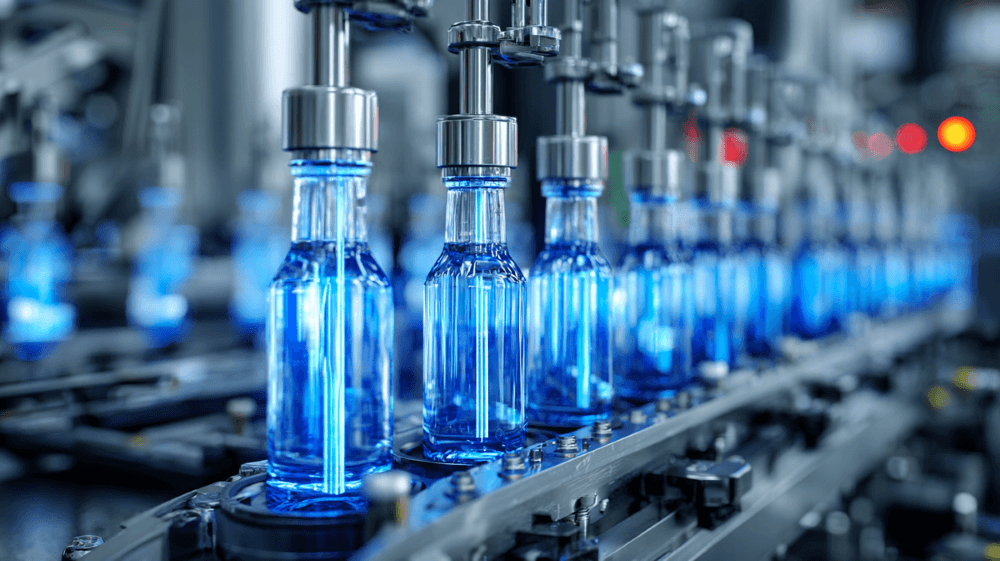Filling machines have become an integral part of the modern manufacturing landscape, particularly in the beverage industry. These machines are designed to fill bottles, cans, and other containers with liquids, ensuring consistency, speed, and hygiene. As consumer demand for beverages continues to grow, the need for advanced filling solutions has never been more critical. Filling machines not only enhance production efficiency but also ensure that products meet stringent quality standards. This article delves into the world of filling machines, exploring their role in the beverage industry, the technology behind them, and their impact on production processes.
Advanced Filling Lines For The Beverage Industry
The beverage industry is characterized by high-volume production and the need for rapid turnaround times. Advanced filling lines are designed to meet these demands by offering precision, speed, and scalability in one system. These systems are capable of handling a wide range of beverage types, from carbonated drinks to juices and water, ensuring that each product is filled accurately and efficiently.
Precision is a critical factor in filling lines, as it ensures that each container is filled to the exact required level, minimizing waste and ensuring consistency across batches. Advanced sensors and control systems are employed to monitor the filling process in real-time, allowing for adjustments to be made on-the-fly to maintain accuracy. This level of precision is essential for maintaining product quality and meeting regulatory standards.
Speed is another crucial aspect of modern filling lines. With the ability to fill thousands of containers per hour, these systems significantly enhance production capacity. High-speed filling machines are equipped with multiple filling heads, allowing them to fill several containers simultaneously. This not only increases throughput but also reduces the time required to complete large production runs.
Scalability is also a key feature of advanced filling lines. As beverage companies grow and expand their product offerings, they need filling systems that can adapt to changing production requirements. Modern filling lines are designed to be modular, allowing for easy upgrades and expansions. This flexibility ensures that companies can scale their operations without the need for significant capital investment in new equipment.
For more information on complete filling lines, visit https://stm-pack.com/filling-lines-categories/complete-filling-lines/.
Precision, speed, and scalability in one system
The integration of precision, speed, and scalability in filling machines is achieved through advanced engineering and technology. Modern filling systems utilize state-of-the-art components and software to deliver unparalleled performance. For instance, servo-driven filling heads provide precise control over the filling process, ensuring that each container is filled to the exact specifications.
The use of advanced software and automation technologies further enhances the capabilities of filling machines. These systems are equipped with sophisticated control software that allows operators to easily configure and monitor the filling process. Real-time data analytics provide insights into production performance, enabling operators to make informed decisions and optimize the filling process.
Additionally, the integration of IoT (Internet of Things) technologies in filling machines allows for remote monitoring and diagnostics. This capability enables manufacturers to identify and address potential issues before they impact production, reducing downtime and maintenance costs. The ability to remotely monitor filling lines also provides valuable data that can be used to improve efficiency and reduce waste.
The combination of precision, speed, and scalability in filling machines not only enhances production efficiency but also contributes to sustainability efforts. By minimizing waste and optimizing resource use, these systems help beverage manufacturers reduce their environmental footprint while maintaining high-quality standards.
The impact of filling machines on production processes
Filling machines have a profound impact on production processes in the beverage industry. By automating the filling process, these machines reduce the need for manual labor, allowing companies to allocate resources more effectively. This automation also reduces the risk of human error, ensuring that products are filled accurately and consistently.
The efficiency gains provided by filling machines translate into cost savings for beverage manufacturers. By increasing production capacity and reducing waste, these systems help companies lower their operational costs and improve profitability. The ability to quickly adapt to changing production requirements also provides a competitive advantage, allowing companies to respond to market demands more effectively.
Furthermore, the use of filling machines enhances product quality and safety. By ensuring that each container is filled to the correct level and sealed properly, these systems help prevent contamination and spoilage. This is particularly important in the beverage industry, where product quality and safety are paramount.
In conclusion, filling machines play a vital role in the beverage industry, providing the precision, speed, and scalability needed to meet the demands of modern production. As technology continues to advance, these systems will become even more integral to the manufacturing process, driving efficiency and innovation in the industry.




